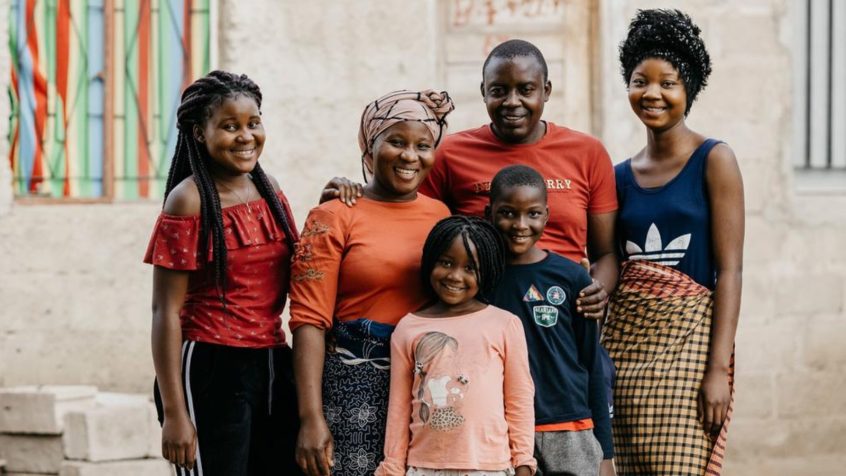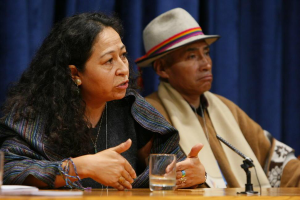Publications
Displaying 51 - 60 of 66
UN General Assembly Reports on Social Development |
UN General Assembly Reports on Social Development |
A/60/155
UN General Assembly Reports on Social Development |
UN General Assembly Reports on Social Development |
Publication |
The United Nations Workshop on Technology and Families was held in Dublin, Ireland from 6 to 10 October 1998. The Meeting was organized by the Department of Economic and Social Affairs of the United Nations Secretariat, Division for Social Policy and Development, in close cooperation with the Government of Ireland, Department of Social Community and Family Affairs, and in association with Quest Campus.
The Meeting was opened by the Minister for Social, Community and Family Affairs of Ireland. In his opening statement, the Minister noted, inter alia, that "there can be no doubting the immense challenges and opportunities that all development of global communications and technological…
The Division for Social Policy and Development commissioned a study on family indicators to guide policy makers in their development of effective family policies. The study provides a critical look at current practice regarding indicators, as well as the basic conditions necessary for the establishment of a comprehensive array of family indicators. In such a conceptual approach, a definition of the term “indicator” is central to the analysis, followed by a brief examination of the concept of the family. Finding a single definition is hindered by the diversity of families in both developed and developing regions.
The study shows that the real meaningful unit for the creation of…
Download full publication The UN Programme on Family launched a New Publication called "Men in Families" on 17 February at the United Nations in New York. In keeping with the objectives of the International Year of the Family, and based on existing research, the current publication aims to promote the knowledge of trends affecting families and increase awareness of family issues among Governments as well as in the private sector. It is also hoped that the study will stimulate efforts to develop family-oriented policies focusing attention upon the rights and responsibilities of all family members. Promoting knowledge of the economic, social and demographic processes affecting…
A bimonthly circular letter prepared by the Programme on the Family of the Division of Social Policy and Development of the United Nations Secretariat, with information about activities related to the family from around the globe.
2003 - Issues 42 to 47
December, No. 47
October, No. 46
August, No. 45
June, No. 44
April, No. 43
February, No. 42
2002 - Issues 36 to 41
December, No. 41
October, No. 40
August, No. 39
June, No. 38
April, No. 37
February, No. 36
2001 - Issues 30 to 35
December, No. 35
October, No. 34
August, No. 33
June, No. 32
April, No. 31
February, No. 30
2000 - Issues 24 to 29
December, No. 29
October, No. 28
August, No. 27
June, No. 26
April, No. 25
February, No. 24…
These nineteen Occasional Papers were published within the context of the preparation and observance of the International Year of the Family.
1/1992: "Family Matters"
2/1992: "Family: Forms and Functions"
3/1992: "Family and Crime"
4/1992: "Older Persons in the Family: Facets of Empowerment"
5/1993: "Family as an Environment: An Ecosystem Perspective on Family Life"
6/1993: "Partnership Families: Building the Smallest Democracy at the Heart of Society"
7/1993: "Family Leave: Changing Needs of the World's Workers"
8/1993: "Family Enrichment: Programmes to Foster Healthy Family Development"
9/1994: "The Intersection of Family, Gender and Economy in the Developing World"…
The experience of Latin American countries in the implementation of family policies is relatively recent. Compared to what has been achieved by most OECD countries in more than thirty years of designing, trying and evaluating policy instruments for families with children, the region is far behind. However, in recent years Latin America has been carrying out significant changes in the field of family policies. Also, academic research and public debate on policies for reducing poverty among families with children and for improving the balance between work and family is becoming stronger.
This paper systematizes the most salient aspects of the situation of Latin American and the Caribbean…
 Welcome to the United Nations
Welcome to the United Nations


